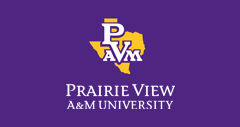Abstract
Studies indicate that calculus acts as a filter for students entering into a STEM discipline, pushing some students to leave their field of study due to failure or disheartenment after going through the course. Since the demand for STEM-trained graduates grows, it is imperative to determine how to prevent more students from switching away from their STEM disciplines. The purpose of this project was to investigate whether the concept of calibration could increase student performance in introductory calculus in order to retain as many students as possible. This was a quasi-experimental study, conducted in calculus I and II courses, imploring CLEAR calculus, which is a nontraditional class style. Results indicated that in calculus I, with data from the first four classroom exams, the calibration could predict performance on the final exam. With calculus II, however, GPA was the only contributing factor to the final exam score. This implies that calibration may be more important in the first course, though further investigation is needed.
Recommended Citation
Kline, T., & Dibbs, R. (2018). Reflection, Calibration and Achievement In Introductory Calculus. Pursue: Undergraduate Research Journal, 1(2). Retrieved from https://digitalcommons.pvamu.edu/pursue/vol1/iss2/2

